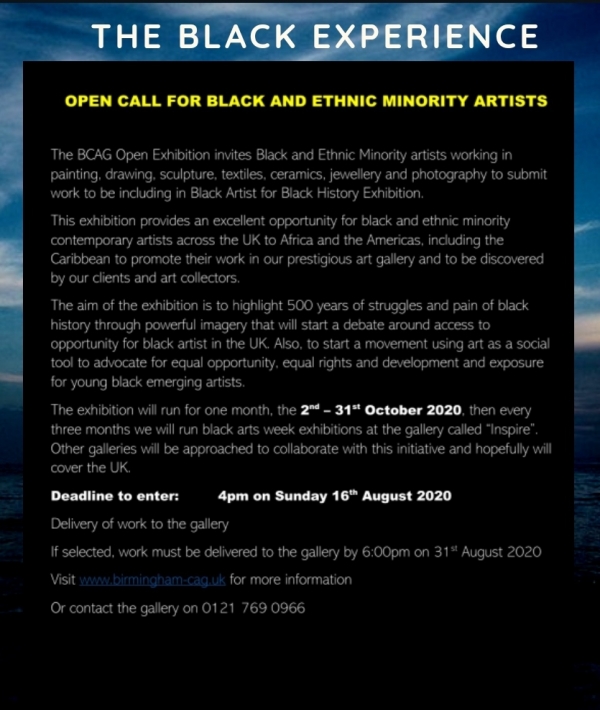
A
curated
Artistic Installation highlighting the legacy of the transatlantic slave trade
and the interpretation of
black people’s identity
Remembering what our original ancestors experienced
This year we commemorate 500th year since our forefathers and mothers were traded and sold on what was the Gold Coast of Africa then packaged together on ships and shipped across the Atlantic Ocean in the most inhumane way as a commodity and as slaves.
What we have endured since has been centuries of pain, subjugation, conscious and unconscious racism, discrimination, financial segregation and police brutality in our fight to be accepted and treated as human beings with dignity respect and universal rights.
We want to raise the value of our art, our beauty, our music, our dance, our poetry and our culinary cuisines and celebrate and highlight our history and our forefather’s legacy. We want to connect with all our brothers and sisters from all parts of our society, including the commonwealth and celebrate how far we have come and how far we still must go in the fight for our identity as one people.
The BCAG of Birmingham is using its platform to highlight and promote black success, black talents, black voices, black art and black history from the 1st October to the 31st October 2020
We owe our traditions, our customs, our styles, our voices, and what legacy we’ve inherited from the brutality of our past, including the lack of humanity and barbarity of the Transatlantic slave trade and how this system greatly benefitted Europe and especially England and helped to spread the development of the industrial revolution.
The history of Jamaica along with other Caribbean islands are synonymous with the evolution of most of what practice today as the black emancipation that links to the African culture through storytelling and folk dance, music, fashion and cuisine. If it were not for sugar and cotton, we would not have been here today.
With this said, how do we remember, share, teach and transfer this legacy to the masses so that we never forget that it was out of this tragic system, perfected by England at the time, that created the economic environment that fuelled the repression of our people that our stories grew from.
This experience we know will speak to millions of black people who have forgotten the fundamental reason why they are here today. We will not find any national monuments, Statues, no written manuscripts, no historical paintings, no first-hand documentation, no written records of who our African ancestors were anywhere in Europe and especially England, but we know that every one of our ancestors is alive in us today as descendants of African slaves. We are their blood, their flesh, their bones. And every generation yet to come will share in this history of our forefathers who not by their choice was forced to make a journey that physically separated them forever from the continent of Africa.
With our search for identity, there is a profound need for us to understand where our pain comes from in order to move on but not forgetting where we originated from and this deep connection we have with the Atlantic Ocean and the plantation fields. The search for who we are will never end.
To honour and highlight this painful truth about the intrinsic attachment of Africa, England and black people’s existence in the Western Hemisphere, The Birmingham Contemporary Art Gallery will be installing a unique art installation designed to commemorate this journey of our ancestors.
This will involve installing a 14ft boat like that which would have been used to transport slaves to the mother ships before the transatlantic voyage.
As a part of the installation, the boat will be filled with volunteers who will remain in the boat for one hour with sugar cane, cotton, shackles, chains, neck restraints and cat-o’-nine-tails whips including soil taken from the Coast of Africa where our forefathers would have been forcefully taken from.
This installation aims to educate and engage people in a national debate about this period in our common history that links British history with black history that has been quietly washed from European history including institutions responsible for funding the trade and fuelling the transatlantic triangle.
This installation also will commemorate this dark but relevant episode of black people’s existence here today, the boat symbolising one of the tools of injustice, of the de-humanisation of the African people. The boat represented a death sentence for black people into slavery, destroying generations of families, communities and a way of life. Even after 70 years since the wind rush, the boat for black people still represents a perpetuating fight for freedom for those free people who travelled here to England to live and work. Today the search for our historical identity in modern Britain today continues.
200 pieces of art by black and ethnic minority artists from across the country and other parts of the old empire, will also be exhibited from the 1st October to the 31st October alongside the installation in the gallery.

